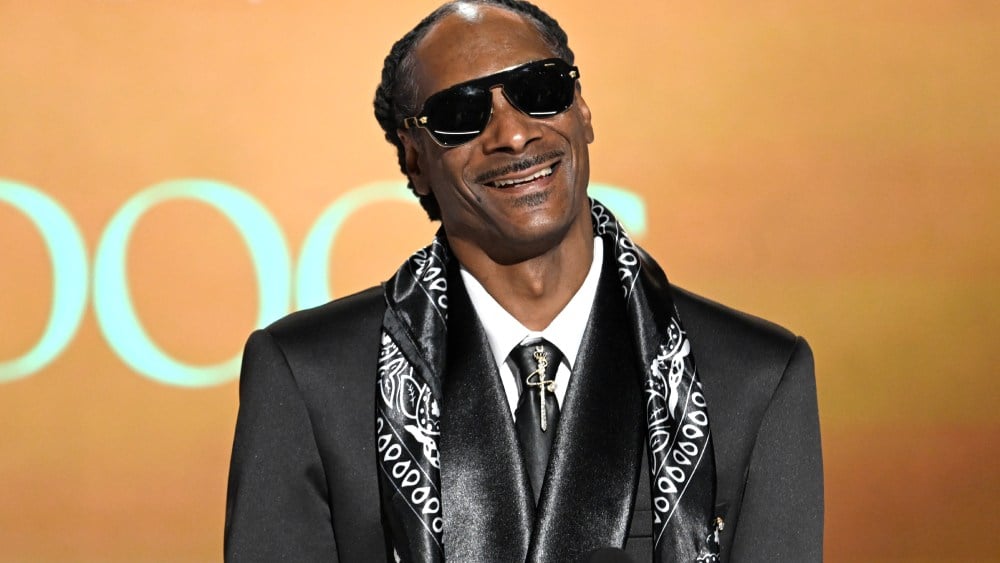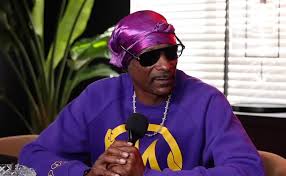Months after facing backlash for his comments about LGBTQ representation in Pixar’s Lightyear, Snoop Dogg has returned with a powerful new message — one centered on love, family, and understanding. On October 13, the legendary rapper released “Love is Love,” a song featured on his animated children’s YouTube series Doggyland, that celebrates the beauty and diversity of modern families. This time, Snoop isn’t just making music; he’s helping spark important conversations about acceptance and compassion among kids and parents alike.
“Love is Love” features The Voice contestant Jeremy Beloate, who was part of Team Snoop in 2024. The pair collaborated on both the song and a deeper conversation that dropped days later through a partnership with GLAAD, the LGBTQ media advocacy organization. The 36-minute discussion, released October 16 to mark #SpiritDay — an annual anti-bullying initiative supporting LGBTQ youth — explores themes of belonging, bullying, and empathy.
For Snoop, this isn’t just a song. It’s a statement. “It’s teaching parenthood, it’s teaching the situations that kids and the world are going through right now in a beautiful way through song, dance, melody,” he said. “Just trying to get more understanding, clarity, on how we live and the way we live. And I felt like this music is a beautiful bridge to bringing understanding.”
The track itself is a gentle and joyful anthem, underscored by lyrics that remind listeners that families come in all shapes and sizes:
“Our parents are different / No two are the same / But the one thing that’s for certain / Is the love won’t change / Families are special / They are so unique / Everybody’s got a purpose / More than what you see.”
It’s a message of unconditional love — something Snoop emphasizes repeatedly throughout the video and his conversation with Beloate. “It’s a beautiful thing that kids can have parents of all walks and be shown love, to be taught what love is — because hate is taught, but so is love,” he said. “Whether it’s two fathers, two mothers, whatever it is, love is the key.”
Snoop also offered heartfelt praise for parents everywhere, saying, “These kids are being loved by these great parents that are showing them an example of what family is. So I want to give a shoutout to all of the parents out there for doing such a great job with these kids.”
The message lands with special significance considering Snoop’s earlier remarks about Lightyear, Pixar’s 2022 film that included a same-sex couple raising a child. During an August appearance on the It’s Giving podcast, the rapper admitted he had been caught off guard when his grandson asked about the movie’s depiction of two women having a baby. “The animated film threw me for a loop,” he said. “These are kids. We have to show that at this age? They’re going to ask questions! I don’t have the answer.”
Those comments sparked criticism from some fans and LGBTQ advocates, who viewed them as a step backward for someone known for his influence over pop culture. But “Love is Love” now feels like a full-circle moment — a public and artistic acknowledgment that Snoop is engaging with those very questions in a more open and constructive way.
His collaboration with GLAAD underscores that evolution. The organization’s involvement not only brings authenticity and support from LGBTQ advocates but also extends the song’s reach to families and educators seeking inclusive content. Through Doggyland, Snoop is introducing children to the idea that differences don’t divide — they enrich.
During their #SpiritDay conversation, Beloate opened up about his own struggles growing up. “I got bullied at school because I was a boy who sang,” he shared. That vulnerability sparked a moment of connection between the two, as Snoop revealed that he too faced bullying as a kid — albeit in very different circumstances. “Most guys like me who come from gang-related neighborhoods, we’ve been bullied, too,” he said.
Snoop then told a story about how, in elementary school, another boy stomped on the goldfish he’d just won as a prize. “There’s things that we deal with, and I know you deal with yours,” he told Beloate. “That’s what I want to say to the people out there that’s being bullied — that you will get past that and you’ll be able to laugh at it, and you’ll be able to smile about it. Because the character we build from being bullied to overcome is what’s important.”
It’s clear that Snoop’s tone today is different from the one that made headlines a few months back. Rather than expressing confusion or discomfort, he’s trying to meet young audiences — and their questions — where they are. His pivot toward understanding speaks volumes about how even cultural icons can learn, evolve, and use their platforms to foster empathy.
In a world where children are exposed to diversity in every form — from families and identities to friendships and storytelling — Doggyland’s “Love is Love” feels both timely and necessary. By blending Snoop’s trademark charm with educational values, the show turns the rapper’s laid-back persona into something profoundly nurturing. It’s a space where hip-hop meets hope — and where music becomes a tool for teaching kindness.

It’s also worth noting how Snoop’s decision to engage in conversations about family diversity resonates beyond music. For decades, he’s been one of the most recognizable figures in pop culture, his voice synonymous with both swagger and street wisdom. Yet with Doggyland, he’s been steadily building a parallel identity as a mentor for children — someone using his platform to promote positivity and growth. Songs like “Affirmations,” “Good Choices,” and now “Love is Love” are playful but carry moral lessons at their core.
In this light, “Love is Love” isn’t just damage control after controversy; it’s part of a growing effort by Snoop to redefine how artists interact with younger generations. He’s acknowledging the importance of representation and empathy — ideas that even adults sometimes struggle to embrace.
Moreover, his partnership with GLAAD adds credibility and community connection to his message. It bridges the gap between mainstream entertainment and advocacy, reinforcing that understanding and education begin with conversation. By collaborating with Beloate, an openly queer artist and former Voice contestant, Snoop also shows the power of mentorship and allyship — two values that can profoundly impact how children see the world.
As for Beloate, his presence on the track adds a layer of authenticity and emotional resonance. His story of being bullied for simply expressing himself through music mirrors the song’s central idea: that everyone deserves love, respect, and the freedom to be who they are. Together, the two artists — from vastly different backgrounds — create a harmony that feels hopeful, forward-looking, and deeply human.
“Love is Love” might not erase past comments, but it does highlight the possibility of growth and dialogue. In today’s polarized climate, that’s a message worth amplifying. Through his music and actions, Snoop Dogg seems to be saying that learning never stops — not for kids, and not for adults either.
Whether you’re a fan of his music or simply someone who believes in the power of understanding, Snoop’s latest project offers something rare: a genuine attempt at connection. It shows that love — in all its forms — is something worth singing about, again and again.

And perhaps that’s the real lesson behind Doggyland’s latest tune: no matter how different we are, when we choose empathy over fear and compassion over confusion, we build a better world — one melody at a time.



